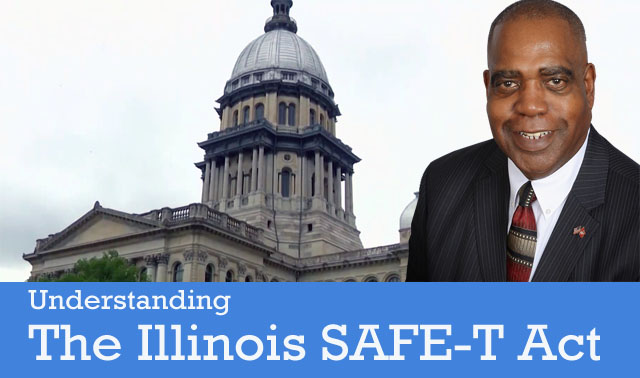There are many debunked rumors floating around about the SAFE-T act. There is no ‘purge’ coming to Illinois as some fear-mongers have suggested. This law allows the courts to hold violent offenders without the risk of them posting cash to get out of jail. We see time and time again that those with money, who committed heinous crimes, bond out of jail, while low-level offenders remain held, because they don’t have the money to bond out. Much like the how the federal court system operates.
Offenders likely to be released from custody include inmates who are charged with such low-level crimes that we allow them to be inmate workers in our kitchen, which contains knives and other sharp utensils, and inmates allowed to work in our laundry room unsupervised. The defendants who won’t be released are violent offenders who pose a risk to the community. Every major victim rights group supports this reform.
But the act goes much further. It adds training for law-enforcement, something we’ve been asking for, for a long time. It adds transparency by mandating body worn cameras.
We had significant concerns with the first version of the bill but worked hard to recommend changes.Through our efforts we were able to remove the language surrounding ending qualified immunity for police officers. So long as officers are following the law and following policy, I do not think they should fear being held civilly liable.
We were also able to ensure the collective bargaining rights of police officers were maintained. I do believe everyone is entitled to due process rights.
While the law allows any defendant to be held without bail if they are a risk to the community or a flight risk, I have asked our legislators to make all crimes of violence automatically considered for ‘no cash bail’ – for example, aggravated DUI, kidnapping, second degree murder, etc.
I fully support law-enforcement across our state and certainly those who work at the Lake County Sheriff’s Office. I also believe in order to maintain trust and support for the community, law-enforcement’s role in society requires constant evaluation from law-enforcement executives. We must always show the community our commitment to lawfully meet the expectations of those we serve.


